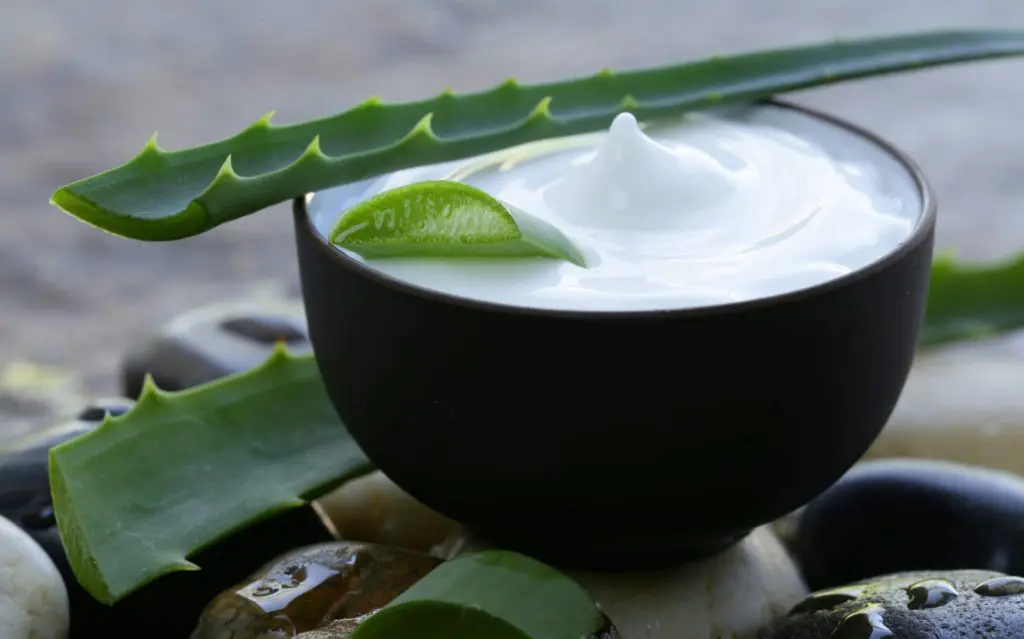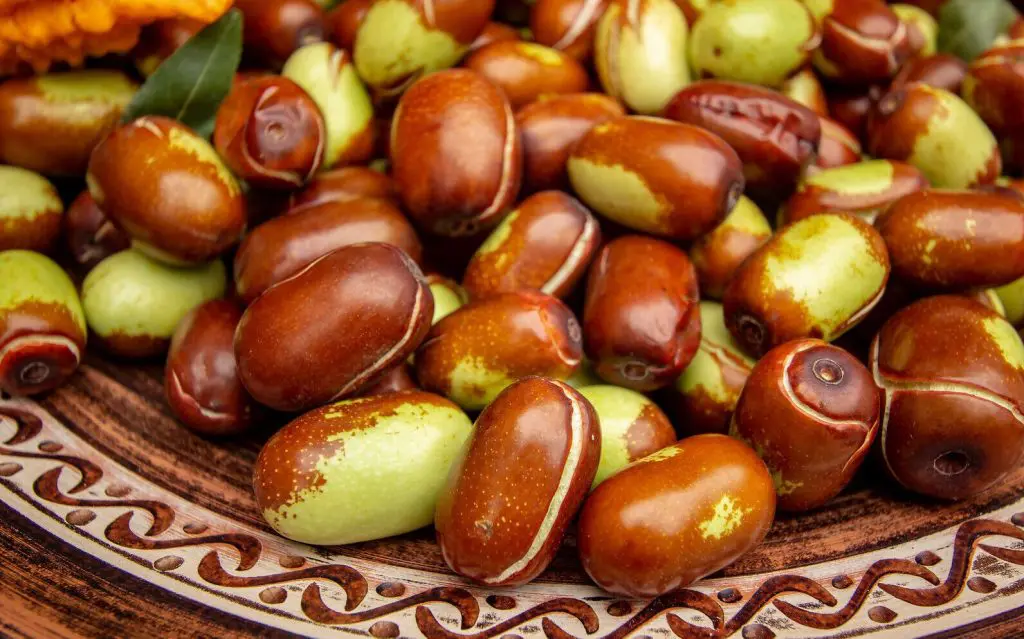When you start on the exciting journey of learning to create and even formulate your own natural skincare products, you’ll find there are some ingredients that are special – the star of your product.
These ingredients are things like essential oils, CO2 extracts and vitamins and they are often what will make your product most effective. They are highly concentrated though, which means they need to be diluted in a base to make sure you’re using the right concentration for your skin.
And as you’d expect, these high-performance ingredients usually come at a higher price.
So to make sure you can use these ingredients safely and in a way that delivers the maximum benefit to your skin, we add them to less concentrated (but still specialist) ingredients called carrier oils, also known as plant oils, fixed oils or base oils.
Carrier oils are plant oils and fats that are extracted from nuts, seeds and fruit pulp using cold press, maceration or CO2 extraction methods – and they’re the foundation of many natural skincare products.

Carrier oils are packed with nourishing and revitalizing qualities – we’ll explain more about this in a moment – and as they are less expensive, they also help to keep the cost down whilst delivering a safe, stable and effective product.
What types of natural skincare products use carrier oils?
The great thing about carrier oils is they are the core of most cosmetics and skincare, whether that’s a shampoo, conditioner, soap, cream, lotion, scrub, balm, butter, serum or cleanser!
In cosmetics we talk about products either being hydrous (with water) or anhydrous (without water).
Hydrous products are a little bit more complex to make because they contain both water and oil, which, as we all know, don’t mix, and therefore require an emulsifier. Now whilst the bulk of these products are made up of water (up to 70% in fact), you’ll also find some space for lovely carrier oils and butters.

Anhydrous products are made up of ingredients that only dissolve in oil, so it’s skincare and cosmetics like this that are most likely to be based around a selection of carrier oils.

Here we’re talking about balms and butters, face and body oils, amongst others.
If you’re using essential oils or other oil soluble high-performance ingredients, these are mixed and diluted into the carrier oil to make the most of them, as well as to get the right ratio and concentration of each.
However, one thing that needs to be clarified here is that carrier oils do much more than just add volume to your high-performance ingredients – they also have their own amazing qualities!
Health benefits of natural carrier oils
Plant-based carrier oils have many wonderful, natural properties that make them essential in any good skincare product or routine.
First of all, they are emollient, which means they soften and smooth the skin which helps to improve the texture and complexion. The fats and oils of these plant oils help to fill the lipid barrier between the cells, which helps to encourage moisturized and healthy looking skin.
And they can also do something else really well – some carrier oils can enhance penetration through the skin, into the cells and the bloodstream. This helps the skin to absorb those high-value, high-performance active ingredients so they can go to work where they are needed.
But what makes carrier oils so important to the health and well-being of our skin?
Put simply, their fatty acid content.
Natural fatty acids are fundamental nutrients that we need to survive. Some of these fatty acids are produced in our bodies, but many are not and we need to get them from the external environment. We do this through the things we ingest and the things we put on our skin.
We call these fatty acids ‘essential fatty acids’.
These essential fatty acids are absolutely vital to the healthy functioning of our bodies, and when applied topically they feed, nourish and replenish our skin. You will find these essential fatty acids in abundance in a wide range of carrier oils, especially omega-3 and -6 essential fatty acids.

Getting to know your carrier oils
Each carrier oil is unique, and that’s because each one has its own precise amount and balance of essential fatty acids, as well as a range of vitamins and other special natural compounds.
Some oils work better with different skin types and skin conditions, and each will have applications that they are ideally suited to. You can read more about understanding how your skin works here.

There are light oils and heavy oils, pale and dark oils, and they can be absorbed into the skin quickly or slowly. There are also oils that have a neutral fragrance, and others with a strong aroma.
Getting to know these carrier oils is one of the most worthwhile and rewarding benefits of making your own natural skincare products. It’s a skill and knowledge you can master and utilise in the products you create to tailor them exactly according to your needs, desires and preferences.
There are three ways to really develop your knowledge of carrier oils.
First is to learn about them from reputable sources who provide up-to-date information about each carrier oil, including its fatty acid content, absorption rate, therapeutic properties, characteristics (viscosity, spreadability, aroma, colour, etc), uses and safety data.
Second is to have a play around with them.
Spend time smelling them, applying them on your skin in different places to observe how it feels, how quickly or slowly they absorb, how the feeling changes over time and taking note of anything specific that happens.

Third is to use them in combination with other ingredients either in some simple blends or in the skincare products you make. Sometimes an oil that isn’t quite right on its own can be brilliant if used in combination with other ingredients or in different types of products, eg maybe a carrier oil doesn’t quite work on its own or in a body oil, but works well in a low dilution in a cream or lotion.
The more time you can spend exploring and experimenting with carrier oils, the better your first-hand experience will be. Keep a journal with your notes and observations. Just remember to learn about them using the theory you find from good sources, like those we provide in our online courses.
Different carrier oils for different purposes
There are so many carrier oils to choose from, with such a wide range of properties and qualities that with the right knowledge, you can find the ones that suit you and your skin perfectly.
Oils can be light and thin, like hazelnut, or rosehip oil, absorbed into the skin quickly, and suitable for all skin types.
Or they can be thicker and richer like avocado oil and macadamia nut oil, which are very useful for dry, dehydrated and mature skin types.
And of course, there are those that take a long time to absorb, such as sweet almond oil and grapeseed oil, making them more useful for massage.
There are different oils that are better suited to specific skin types and conditions, and they can work really well whether skin is dry or oily, sensitive or combination, mature or damaged.

There are specialist oils like sea buckthorn, prickly pear seed oil, kiwi seed oil that are ideal for high-performance face products, and there are oils that can be used as an alternative if you want to avoid nuts or other ingredients that could affect allergies.
And then there are macerated herbal infusions such as calendula and St John’s wort to harness the therapeutic properties of the herb.
Qualities of carrier oils
As we mentioned, oils like avocado and macadamia nut that are thicker, richer and fattier are really great for dry, dehydrated and mature skin.

Oils like these are occlusive, which means they’re composed of large molecules that are not absorbed into the skin. Instead these occlusives protect the skin by forming a membrane that provides a natural barrier.
In effect, parts of these oils stay on the outermost surface of the skin, forming a thin layer which helps to enhance the skin’s protection against damage from things like the environment and weather as well as chemicals, pollutants or irritants. This thin protective layer also helps to reduce transepidermal water loss, keeping the skin moist but still allowing it to breathe.
Other oils are humectants, which means they draw in moisture from the surrounding environment, and also from the surface layer of the skin, helping to keep the skin hydrated and moisturized.
Squalane is an all-round amazing oil with fantastic benefits for your skin, and it’s a good example of an oil that has humectant qualities.
If you want to find out more about the wonderful qualities of squalane oil, you can read about it here – and you’ll also find our free recipe for an amazing facial serum!
Can you use carrier oils on oily skin?
If you have oily skin, don’t think that means that you shouldn’t use oils.
Everybody’s skin produces oil – we have glands in the deeper skin tissue that make an oil called sebum and it plays a vital role keeping skin strong, elastic and supple. People with oily skin could be overproducing sebum, or they may have larger pores so that more of the sebum ends up on the surface of the skin.
Jojoba is an amazing oil with qualities that can really help oily or acne-prone skin.
It is excellent at helping to reduce and regulate the production of sebum in the skin, leaving oily skin much more balanced. Just note that the effects may not be noticed immediately; it may take several weeks and consistent daily use to begin to notice the changes.
Another of our favourites is rosehip oil. It is a light oil that is absorbed into the skin very quickly, leaving it feeling smooth and dry. It’s also terrific for helping to heal and repair skin that’s scarred or damaged.

You can find out more about rosehip oil in this article, and there’s a free recipe for you to try as well!
Can you use carrier oils on dry skin?
When it comes to dry skin, there are lots of carrier oils that will help, each in their own way.
They help to maintain the protective lipid (or oil) barrier between cells, encourage healthy skin growth, and help to keep your complexion soft and smooth.
Carrier oils can also help to balance sebum production.
Shea butter, for example, is an excellent moisturizer, and helps to sooth, protect and heal dry skin. Used in creams, lotions and massage oils, it also has antibacterial and anti-inflammatory qualities and contains phytosterols, which stimulate cell growth, supporting the regeneration of damaged skin.

But to keep dry skin hydrated and performing to its full potential you do need water as well. If you want to know more about formulating skincare for dry skin, check out this article Why dry skin needs creams and lotions more than balms and butters: what you need to know to soften and nourish dry skin
Finding out how you can use the right carrier oils in your own skincare
In our Certificate in Natural Skincare course you can learn about dozens of carrier oils, their unique qualities and uses, and what oils can be used as substitutes. You’ll also get exclusive access to more than 120 of our favourite natural skincare recipes that you can start making straight away. To find out more: https://www.schoolofnaturalskincare.com/certificate-in-making-natural-skincare-products/
If you want to go to the next level, our Diploma in Natural Skincare Formulation takes you beyond the recipes and teaches you everything you need to know to start formulating your own products from start to finish. You’ll find out all about the different essential fatty acid profiles of carrier oils and how they work on the skin and how to create skincare that’s exactly what you want it to be.
Join our growing community of students from around the world!
https://www.schoolofnaturalskincare.com/formulation/
Of course, if you’re not quite ready for that yet, why not check out some of our related blog articles for some more information.
You can find some information and advice about how to ‘choose’ the right carrier oils here.
If you want to delve a little deeper into the carrier oil subject and discover the best carrier oils for winter here.
Another thing to consider is whether you want to use refined or unrefined carrier oils! We wrote an article about that here.
And finally, if you’re interested to infuse your own carrier oils check out our article on that very topic here.
All of this is just a fraction of what there is to learn about carrier oils. For the ultimate deep dive and fast track to expert knowledge, join one of our multimedia online courses.
Free Guide
The Beginner's Guide to Formulating Natural Skincare Products (From scratch, like a professional!)
Start creating your own natural skincare products from scratch – rather than simply following recipes!
Learn how to formulate like a pro and discover our top tips for becoming a confident skincare formulator.

Exclusive for our newsletter subscribers. Sign up now.
We look after your data in accordance with our privacy policy.
Download this fabulous guide and you’ll learn:
- What formulating is and why you need to be doing it!
- The difference between following recipes and formulating your own products.
- Our step-by-step process to designing products people love.
- Four easy ways to personalize your skincare products.
- Choosing the right carrier oils for your beauty products.
- Plus, you’ll get our Safe Product Checklist: How to make sure the skincare products you make are safe and stable
Liked learning about carrier oils? Pin this to remember!





